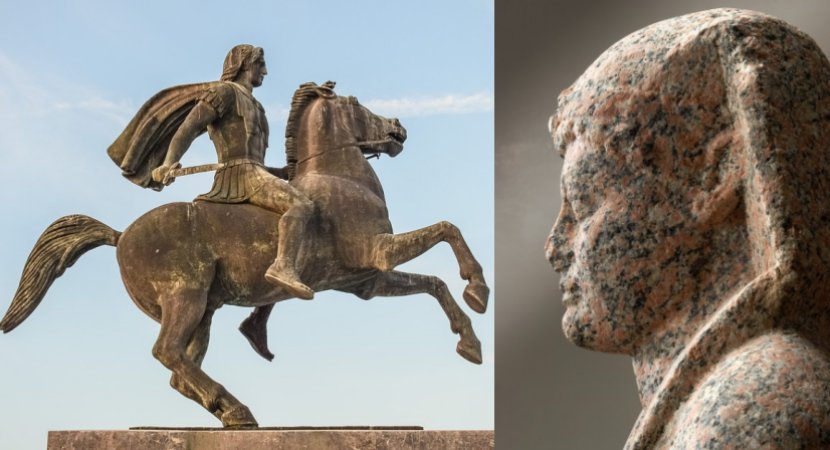Alexander The Great Was Crowned Pharaoh And Declared Son Of God Amun
Conny Waters - AncientPages.com - Not all pharaohs were of Egyptian origin. Alexander III of Macedon, known as Alexander the Great (356 - 323 BC), was crowned pharaoh and declared the son of God Amun in ancient Egypt.
In May 334 B.C., Alexander the Great began his invasion of the Persian Empire. In the Battle of the Granicus, he defeated Darius III, the last king of the Achaemenid Empire.
Left: Statue of Alexander the Great, Thessaloniki, Greece, Image Credit: Public Domain. Right: Alexander the Great as pharaoh. Image credit: Public Domain
The battle took place in Northwestern Asia Minor, near the site of Troy, and was the first of three major battles fought between Alexander the Great and the Persian Empire.
It was a battle in which Alexander the Great came close to failure and death. However, he survived, and after the victory, he set eyes on Egypt.
Alexander the Great’s victory over the Persians welcomed ancient Egypt, which was no longer a dominating kingdom after being conquered earlier by the Persians. So, when Alexander the Great entered Egypt, people saw him as a liberator who had freed the Egyptians from many years of brutal oppression at the hands of the Persian Empire.
In the Autumn of 332 B.C., Alexander the Great, who was only 24 years old at the time, was crowned pharaoh in Memphis. He visited the Temple of the Oracle of Amun in the Western Desert of Egypt, not far from the border of Libya. The great Macedonian conqueror was declared the son of the god Amun. This was a special title because Amun was worshiped as the god of the Egyptian creator. He was considered the king of the gods and the physical father of all pharaohs.
Alexander the Great was now the ruler of Egypt, and unlike the Persians, he encouraged people to keep practicing their native religion. Interestingly, he said that he prayed to Egyptian gods for guidance but never revealed what they had told him.
Though Alexander the Great spent two months living as comfortably as a god at the palace, he certainly did not neglect his duties as a ruler.
Acting as a pharaoh and military commander, Alexander the Great restored political power in the country and appointed Egyptians. But he didn’t take unnecessary risks and ensured Egypt’s armies remained under Macedonian command.
Before he left to conquer new lands, he founded the city of Alexandria along the coast of the Mediterranean Sea in the north-central part of Egypt. Famous for its stunning lighthouse and great library, Alexandria was once the second most powerful city of the ancient Mediterranean region, after Rome.
Alexander the Great died in Babylon on June 11, 323 B.C and his death opened a new chapter in the history of Egypt.
Ptolemy I Soter (366 BCE – 282 B.C.), who served as one of Alexander the Great's generals and deputies, became king of Egypt. He was the one who founded the Ptolemaic dynasty, which brought some significant changes to the country.
Ancient Egyptians soon accepted the Ptolemies as the successors to the pharaohs of independent Egypt. The Ptolemaic dynasty ruled Egypt until the Roman conquest. Cleopatra VII Philopator was the last active ruler of the Ptolemaic Kingdom of Egypt, nominally surviving as pharaoh by her son Caesarion.
As mentioned earlier on Ancient Pages, Little Caesar - Caesarion was murdered on August 23, 30 BC, only 17 years old. He was the last King of the Egyptian Ptolemies, most probably the son of Julius Caesar, and his mother was Cleopatra VII.
Updated on October 10, 2023
Written by Conny Waters – AncientPages.com Staff Writer
Copyright © AncientPages.com All rights reserved. This material may not be published, broadcast, rewritten or redistributed in whole or part without the express written permission of AncientPages.com
More From Ancient Pages
-
 Beehive’ Adobe Houses Of Ancient City Of Harran, Upper Mesopotamia
Civilizations | Dec 28, 2018
Beehive’ Adobe Houses Of Ancient City Of Harran, Upper Mesopotamia
Civilizations | Dec 28, 2018 -
 Comet Strike 13,000 Years Ago May Have Changed Human Civilization
Archaeology | Jul 6, 2021
Comet Strike 13,000 Years Ago May Have Changed Human Civilization
Archaeology | Jul 6, 2021 -
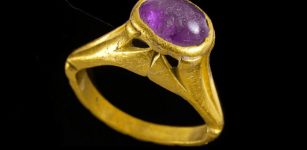 Ancient Greek Amethyst Ring To Ward Off A Hangover Discovered At The World’s Largest Byzantine Wine Factory In Yavne, Israel
Archaeology | Nov 12, 2021
Ancient Greek Amethyst Ring To Ward Off A Hangover Discovered At The World’s Largest Byzantine Wine Factory In Yavne, Israel
Archaeology | Nov 12, 2021 -
 6,000 Years Ago, Europe’s Oldest Cities Relied On Fertilizer And Plant Protein, Isotope – Analysis Shows
Archaeology | Dec 19, 2023
6,000 Years Ago, Europe’s Oldest Cities Relied On Fertilizer And Plant Protein, Isotope – Analysis Shows
Archaeology | Dec 19, 2023 -
 Ancient Egyptians Invented World’s Oldest Egg Ovens And They Are Still In Use
Ancient History Facts | Jul 6, 2021
Ancient Egyptians Invented World’s Oldest Egg Ovens And They Are Still In Use
Ancient History Facts | Jul 6, 2021 -
 Controversial Unexplained Ancient Mystery In Mongolia – Horrifying Sight – Part 2
Ancient Mysteries | May 2, 2018
Controversial Unexplained Ancient Mystery In Mongolia – Horrifying Sight – Part 2
Ancient Mysteries | May 2, 2018 -
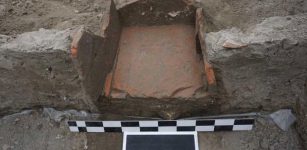 Ancient ‘Refrigerator’ And Unique Coins Discovered In Roman Military Camp In Bulgaria
Archaeology | Oct 3, 2022
Ancient ‘Refrigerator’ And Unique Coins Discovered In Roman Military Camp In Bulgaria
Archaeology | Oct 3, 2022 -
 Enigma Of San Bernardo Mummies That Refuse To Decompose
Featured Stories | Nov 7, 2018
Enigma Of San Bernardo Mummies That Refuse To Decompose
Featured Stories | Nov 7, 2018 -
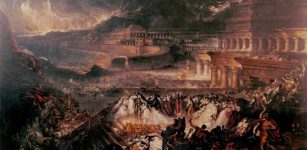 On This Day In History: Battle Of Nineveh Was Fought – On Dec 12, 627 AD
News | Dec 12, 2016
On This Day In History: Battle Of Nineveh Was Fought – On Dec 12, 627 AD
News | Dec 12, 2016 -
 Mysterious Ancient Tomb Reveals ‘Impossible’ Human Connection To Cosmos – Human Anomaly? – Part 2
Ancient Mysteries | Oct 15, 2020
Mysterious Ancient Tomb Reveals ‘Impossible’ Human Connection To Cosmos – Human Anomaly? – Part 2
Ancient Mysteries | Oct 15, 2020 -
 On This Day In History: Irish Saint Columbanus Founder Of Monasteries In Europe Died – On Nov 21, 615
News | Nov 21, 2016
On This Day In History: Irish Saint Columbanus Founder Of Monasteries In Europe Died – On Nov 21, 615
News | Nov 21, 2016 -
 Ancient Wooden Slips Inform About China’s First Emperor’s Search For Mysterious Elixir Of Immortality
Archaeology | Dec 26, 2017
Ancient Wooden Slips Inform About China’s First Emperor’s Search For Mysterious Elixir Of Immortality
Archaeology | Dec 26, 2017 -
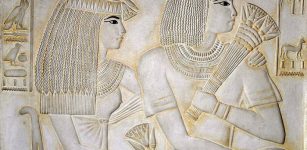 Mystery Of Merit Ptah And The Unknown Identity Of Peseshet Who History Forgot
Archaeology | Jan 8, 2020
Mystery Of Merit Ptah And The Unknown Identity Of Peseshet Who History Forgot
Archaeology | Jan 8, 2020 -
 4th-Century Roman Coin And Pub-Like Structure With Heating System Excavated In Slovakia
Archaeology | Aug 11, 2020
4th-Century Roman Coin And Pub-Like Structure With Heating System Excavated In Slovakia
Archaeology | Aug 11, 2020 -
 Mysterious Bronze Age Face Carved In Rock And Rare Artifacts Found In Kazakhstan
Archaeology | Aug 12, 2024
Mysterious Bronze Age Face Carved In Rock And Rare Artifacts Found In Kazakhstan
Archaeology | Aug 12, 2024 -
 Ancient Viking Age Music Recreated – This Is What It Sounds Like
Featured Stories | Sep 20, 2020
Ancient Viking Age Music Recreated – This Is What It Sounds Like
Featured Stories | Sep 20, 2020 -
 Exciting discoveries made by archaeologists in Laconia
News | Aug 25, 2015
Exciting discoveries made by archaeologists in Laconia
News | Aug 25, 2015 -
 On This Day In History: American General Benedict Arnold Commits Treason – On Sep 21, 1780
News | Sep 21, 2015
On This Day In History: American General Benedict Arnold Commits Treason – On Sep 21, 1780
News | Sep 21, 2015 -
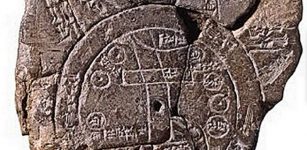 Imago Mundi: Famous Babylonian World Map Is The Earliest Known In The World
Artifacts | Sep 10, 2015
Imago Mundi: Famous Babylonian World Map Is The Earliest Known In The World
Artifacts | Sep 10, 2015 -
 Ancient Roman Sarcophagus With A Female Skeleton And A Perfume Bottle Discovered In Turkey
Archaeology | Dec 27, 2019
Ancient Roman Sarcophagus With A Female Skeleton And A Perfume Bottle Discovered In Turkey
Archaeology | Dec 27, 2019

